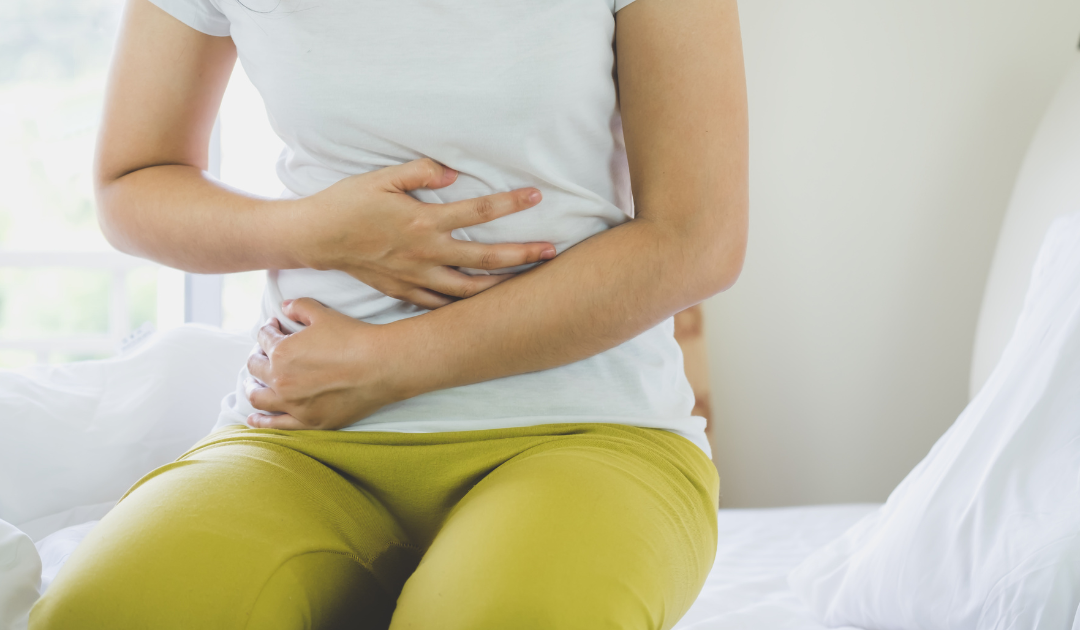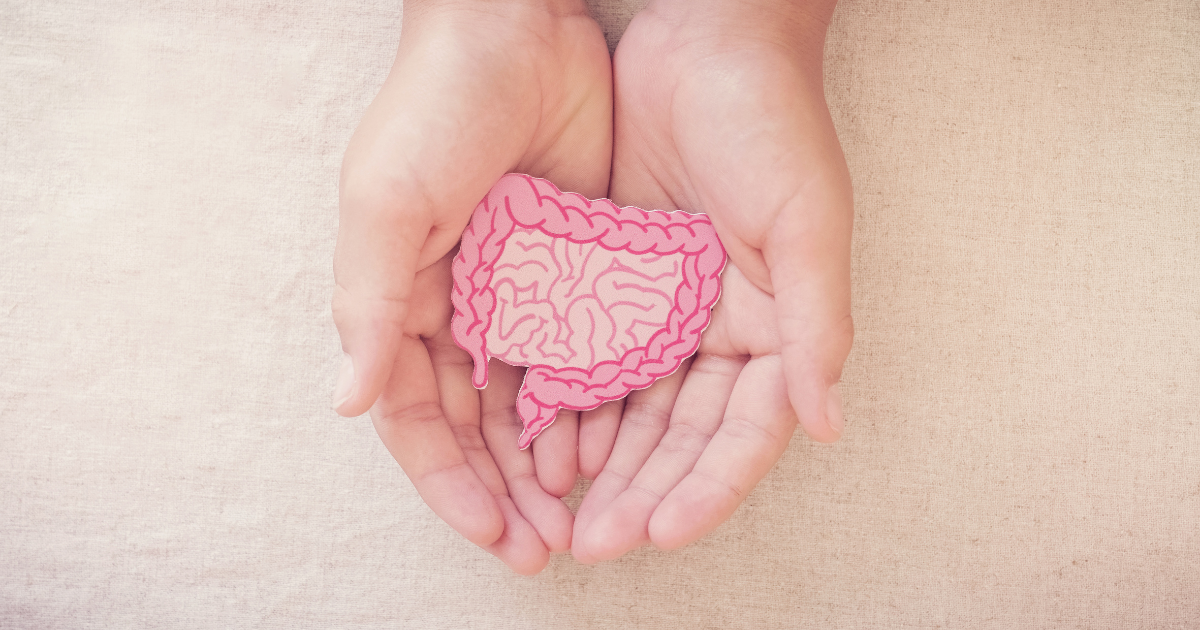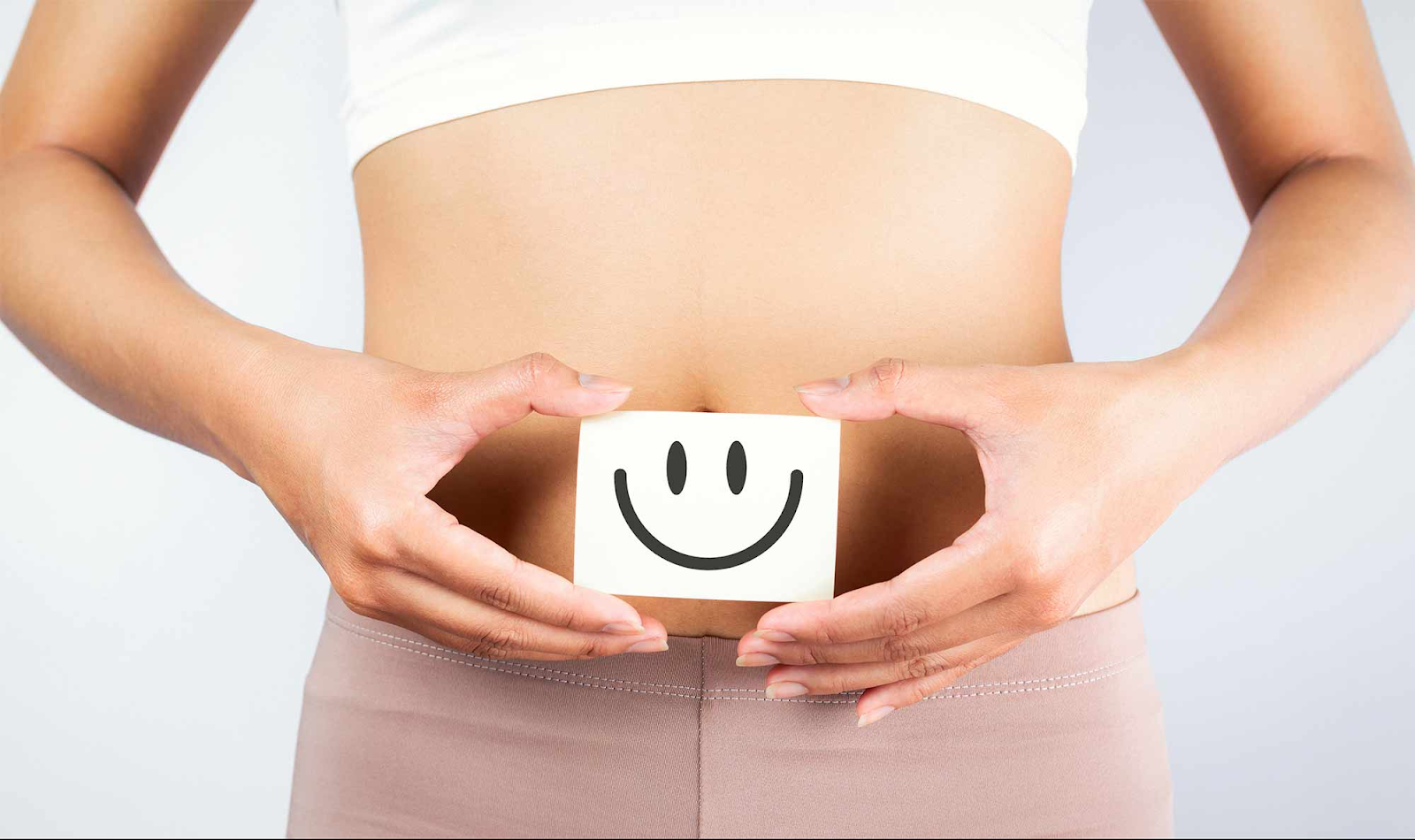
What Foods Trigger IBS: Ask the Dietitian
Have you been diagnosed with irritable bowel syndrome (IBS) or feel like you may have IBS? If so, you may be curious about what foods trigger IBS.
Understanding how diet affects IBS symptoms can help you regulate your abdominal discomfort and your overall health!
Trust me, I know that IBS can be an extremely frustrating and overwhelming condition. The symptoms can start to greatly impact your quality of life and time with friends and family.
In today’s article, I will be diving into the basics of IBS, including symptoms and diagnosis criteria. Then, I will share my best tips for treating and managing IBS as a specialized dietitian.
Are you dealing with prediabetes or high blood sugar on top of gut health issues? If so, then make sure to check out my latest blog on how to reverse prediabetes with diet and exercise!
What is IBS?
Irritable Bowel Syndrome, or IBS, is a chronic functional gastrointestinal disorder that causes altered bowel states and abdominal discomfort or pain.
IBS affects approximately 20% of the general population, with women being twice as likely to report symptoms.
There are four different subtypes of IBS, depending on your symptoms:
- IBS with constipation (IBS-C)
- IBS with diarrhea (IBS-D)
- IBS with a combination of constipation and diarrhea
- Unclassified IBS
While IBS can significantly affect the quality of one’s life, the causes are still widely unknown. However, a large amount of research supports the connection between diet, mental health, lifestyle, and environmental factors with IBS.
As you can see, there’s absolutely hope for you and your management of the condition!
What are the Symptoms of IBS?
This is a tricky question because everyone has different experiences and discomforts with IBS. Symptoms of IBS can vary per individual, so efficient care is a very personalized approach!
Common symptoms of IBS can include but aren’t limited to:
- Abdominal pain & cramping
- Bloating
- Gas
- Altered GI function
- Constipation
- Diarrhea
- Both constipation and diarrhea
- Indigestion
- Nausea
- An urgent need to defecate
How is IBS Diagnosed?
There is no test to give a definitive diagnosis for IBS.
However, doctors will review symptoms and past medical history and complete a physical exam to ensure you don’t have Celiac disease or Inflammatory Bowel Disease (IBD), which both have similar symptoms.
If your tests come back negative for Celiac Disease or IBD, you will then likely be assessed for IBS criteria to determine a diagnosis.
- Rome Criteria
- Belly pain and discomfort at least once a week within the last three months
- The pain and discomfort follow with defecation, a change in frequency of defecation, and/or a change in stool consistency.
- Type of IBS
- IBS-C (constipation)
- IBS-D (diarrhea)
- Both constipation and diarrhea IBS
- Unclassified IBS
You may need to continue to receive additional testing and bloodwork before coming to a definitive diagnosis.
What Role Does the Gut-Brain Connection Play In IBS?

In order to understand IBS and truly get to the root of the problem, understanding key physiology features is very helpful.
One key component of IBS is the connection between your gut and brain, called the gut-brain axis.
Your autonomic nervous system (ANS) is responsible for involuntary processes like heart rate, blood pressure, respiration (breathing), digestion, bodily fluid production, and more. The ANS has three subgroups: parasympathetic nervous system, sympathetic nervous system, and enteric nervous system.
I want to focus on the enteric nervous system (ENS) since it plays such a vital role in digestion and intestinal function. The ENS contains a whole network of neurons that line the entire GI tract, extending all the way up to the esophagus and down to the anus.
Did you know the ENS is known as the “Second Brain” or the “Brain of the Gut”?
IBS is classified as a gut-brain interaction disorder because messages constantly go to and from the brain.
If any miscommunications are potentially due to anxiety or stress, your IBS symptoms can begin or worsen!
Now that you’re more of an expert on the symptoms and causes of IBS, let’s talk about how we can treat IBS and have a healthy and happy gut.
Treatment of IBS

Dietary changes are commonly made in order to reduce symptoms of IBS.
Since food triggers vary from person to person with IBS, identifying personal food triggers can be a series of trial and error.
How to identify your triggers:
- Keep a food journal! Write down what you eat during each meal, with a note on how you felt after. This can allow you to find common denominators and eliminate your triggers!
- Be aware of common triggers so you are better prepared to make connections through your food journal. Remember that depending on which subtype of IBS you have been diagnosed with, different foods will trigger you.
What Foods Trigger IBS?
Next, I will be discussing what foods trigger IBS.
It is always best to work with an IBS dietitian before completing any type of elimination protocol on your own!
Common Triggers for IBS-C (constipation-predominant)
- Breads and cereals made with refined grains
- Processed foods like cookies and cakes
- Coffee, alcohol, carbonated drinks
- Dairy products
If you have IBS-C, you should instead focus on INCREASING:
- Fiber: Fruits, vegetables, beans, lentils, and whole grains can help reduce gas and bloating and increase bowel motility.
- Water: Drink plenty of water! If your body recognizes it is dehydrated, it will try to retain as much water as possible, and thus, your stool will have a much harder consistency.
- Prune Juice: Trust me when I say that prune juice is your best friend during constipation! Prune juice is high in sorbitol and fiber, making it a natural laxative.
Common Triggers for IBS-D (diarrhea predominant)
- Too much fiber can cause diarrhea. There is fiber in the external skin of fruits like apples, prunes, kiwis, etc. Monitor how much your body can handle fiber since this is very individualized!
- Coffee, alcohol, carbonated drinks, any caffeinated drinks
- Fried and fatty foods
- Dairy products, especially for lactose-intolerant folks
- Foods with wheat, especially for people who are gluten-sensitive
If you have IBS-D, you should instead focus on :
- Eat a moderate amount of fiber. Soluble fiber is better for IBS-D symptoms. Soluble fiber options include oats, peas, beans, citrus fruits, etc.
- Try to drink water an hour before and an hour after your meals instead of during your meals.
- Stick to lean proteins like chicken or eggs
- Noodles, rice, and potatoes are a great option for neutral and diarrhea-safe foods!
Common IBS treatment options or strategies for most IBS patients include:
- Reduce Cruciferous Vegetables: Cruciferous vegetables include cabbage, broccoli, cauliflower, kale, bok choy, and collard greens. Cruciferous vegetables are high in sulfur and thus can increase IBS symptoms by increasing gas, bloating, and diarrhea.
- Try reducing very spicy foods. Some people are spice-sensitive and may have flare-ups as a result.
- Try to eat slower and more mindfully. Give your body the opportunity to digest at an adequate pace.
- Get more exercise to reduce stress, improve bowel function, and reduce bloating.
- Increase Omega-3 Fats: Omega-3s are great for brain health, which, as you now know, correlates with the gut! Foods rich in Omega-3s include fish, seafood, flaxseed, chia seed, and walnuts.
- Quality stress management – Have you ever had a “gut-wrenching” experience? Had “butterflies” in your stomach? Felt nauseous from a situation? These emotionally driven physical feelings are due to the brain’s direct effect on the stomach and intestines. It is also scientifically proven that the gut and brain connection is a two-way street, meaning a stressed gut can send signals to the brain and vice versa. Since the GI system and the brain are so intimately connected, stress-induced stimulation can cause symptom flare-ups in IBS!
Stress-management techniques like the ones listed below help maintain a healthy relationship between the gut and brain.
- Deep breathing exercises
- Yoga
- Adequate sleep
- Therapy
- Guided imagery exercises
- Do something fun as often as possible – read, hang out with friends, paint, color, shop, etc.
Should You Follow a Low-FODMAP Diet?
A low-FODMAP diet is another treatment option that is available for IBS patients.
“FODMAP” stands for Fermentable Oligosaccharides, Disaccharides, Monosaccharides, and Polyphenols. Some people are highly sensitive to high-FODMAP foods.
These short-chained carbohydrates don’t absorb well in the intestine and thus could potentially cause bloating and abdominal pain.
High-FODMAP Foods Include:
- Canned fruit
- Fruits such as apples, apricots, pears, plums, cherries, mangoes, watermelon
- Large consumption of fruit juices at one time
- Wheat and rye products
- Dairy products
- Honey and foods high in high-fructose corn syrup
- Cruciferous vegetables, artichokes, asparagus, beans, garlic, mushrooms, onion, snow peas
What Foods Trigger IBS: The Takeaways

I know this can be a lot to take in, as IBS is a very personalized diagnosis. Just know that the more you understand yourself and your triggers, the more you can regulate the discomfort.
Here you go for those wanting a summary of the key points we discussed!
There are four different subtypes of IBS, depending on your symptoms:
- IBS with constipation (IBS-C)
- IBS with diarrhea (IBS-D)
- IBS with a combination of constipation and diarrhea
- Unclassified IBS
Many individuals with IBS link their symptoms to dietary factors, making diet the central area of concern for symptom reduction. Identifying your food triggers is the first step. Next, eliminating triggers will alleviate the pain or discomfort.
How to identify your triggers:
- Keep a food journal!
- Be aware of common triggers so you are better prepared to make connections through your food journal.
Some dietitian-approved treatment options or strategies for most IBS patients include:
- Reduce Cruciferous Vegetables
- Try reducing very spicy foods
- Eat slower
- Get more exercise
- Try following a low FODMAP diet
- Increase Omega-3 Fats
- Quality stress-management
Looking for additional guidance and support with nutrition and IBS? Head over to my services page to learn more about my 1:1 premium nutrition counseling services. There is no better time to take charge of your IBS than now!
